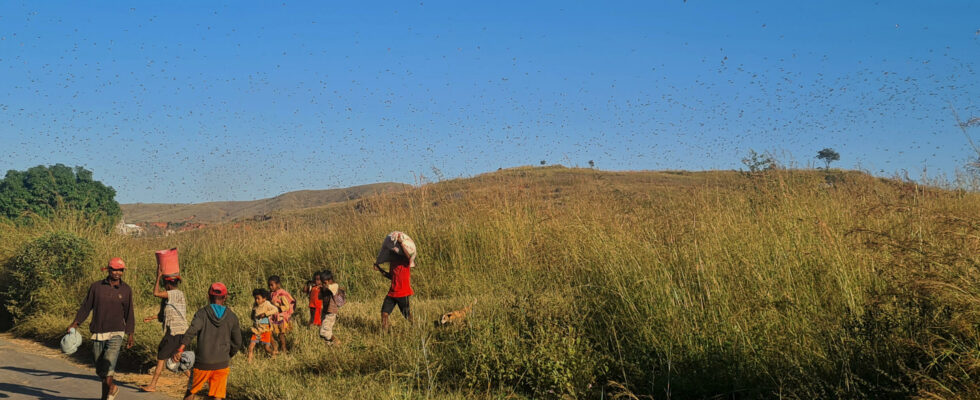A better study of the customs and beliefs of the different Malagasy peoples could allow us to act more pertinently in terms of environmental preservation and disaster management. This is the postulate put forward by Tsiory Randriamanantena, a Malagasy anthropologist, who recently studied the relationship between the Bara ethnic group, a population of south-central Madagascar, and the grasshopper.
2 min
With our correspondent in Madagascar, Sarah Tétaud
The initiatives environmentalists Are the island’s traditions compatible with local realities? Not all of them, says Tsiory Randriamanantena, who has spent the last eight months in landlocked areas of the Bara people. These semi-nomadic pastoralists have a very special relationship with nature, and especially with the grasshopper.
” They consider this being not as an animal, but they treat it rather as a plant. And besides, they connect this insect to spirits that we call Helo, which are spirits of life and nature that they believe in. In this population, the animal versus vegetalor mineral versus organic, does not exist. »
This classification of living beings is therefore different from that usually used, just like the way of seeing and thinking about the world among the Bara. What this teaches us is that, for example, locust invasions are not necessarily considered a calamity. On the contrary. There is joy in the village when there is an invasion because we accumulate enough stocks of locusts to be able to withstand the lean season. So, they are rather joyful and happy when the first clouds of locusts appear in the distance. »
” Collecting all these grasshoppers compensates for crop losses »
The anthropologist continues. Better understanding these cultural differences and beliefs is extremely important; it allows us to have nuanced points of view and to better identify the initiatives to be taken. Because at a time when these locust invasions are described as scourges in Madagascar, we must remember that among the Bara, certainly the locusts also ravage the crops, but the benefit they find in collecting all these locusts at least psychologically compensates for the harvest losses. »
These observations call into question the spreading of pesticidesoften recommended in locust control strategies.
Also readMadagascar: risk of imminent disappearance of Menabe grasshoppers
